
Find Help
More Items From Ergsy search
-
Are high caffeine drinks safe?
Relevance: 100%
-
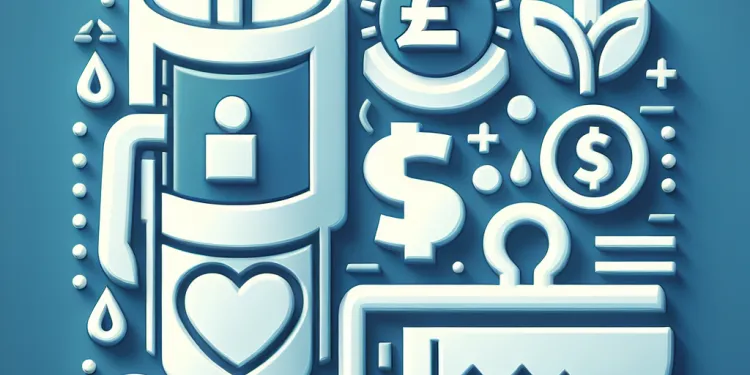
How much caffeine is generally considered safe for people with high blood pressure?
Relevance: 61%
-
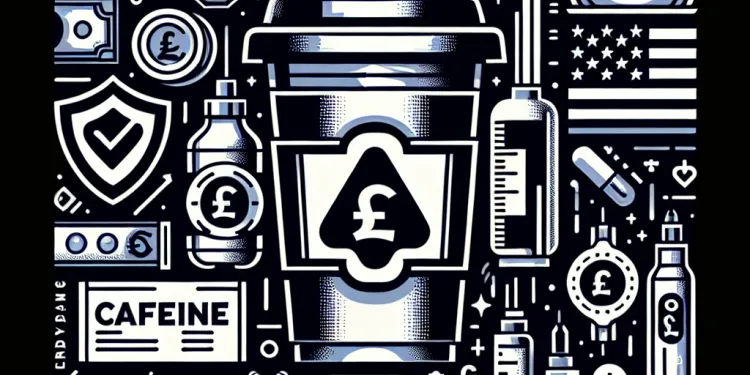
Are caffeine pouches safe?
Relevance: 56%
-
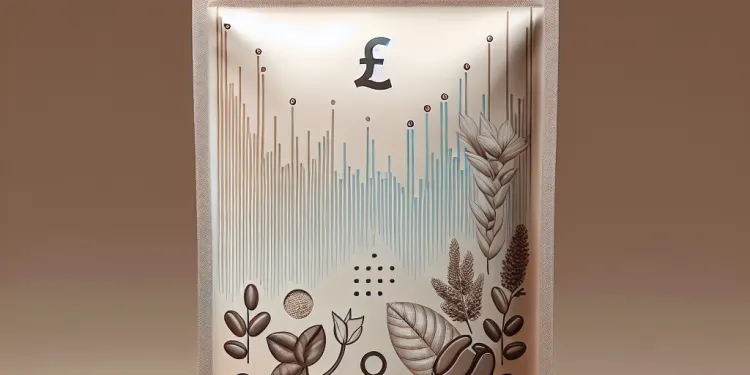
How much caffeine is in a caffeine pouch?
Relevance: 54%
-
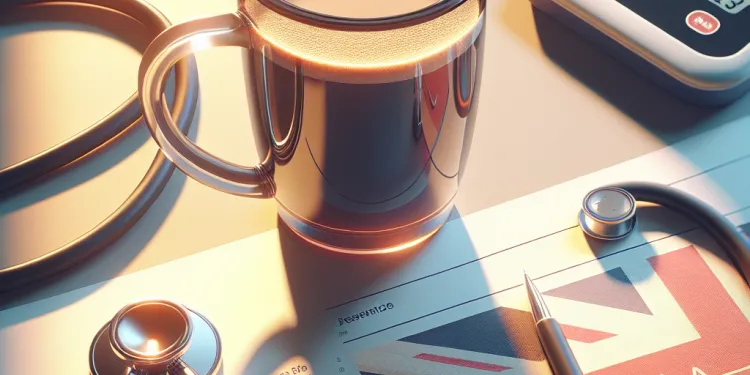
Does drinking coffee every morning increase the risk of developing high blood pressure?
Relevance: 53%
-
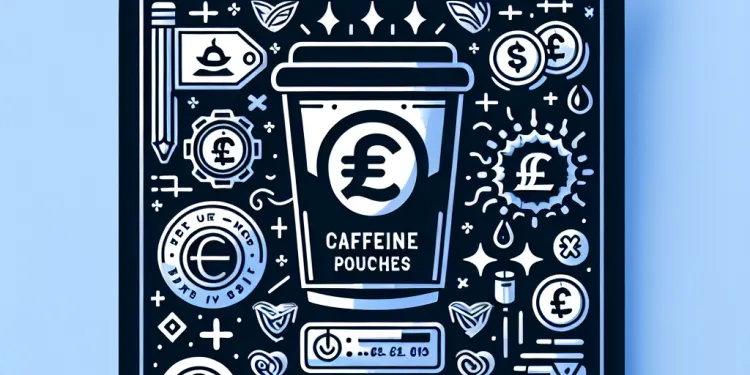
Are there any legal restrictions on caffeine pouches?
Relevance: 51%
-
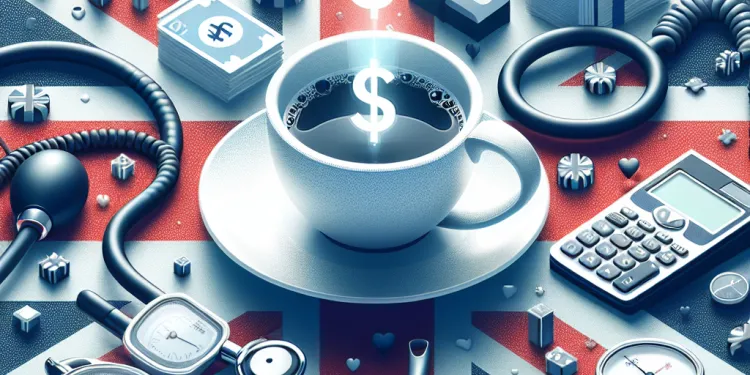
Does caffeine affect blood pressure?
Relevance: 50%
-
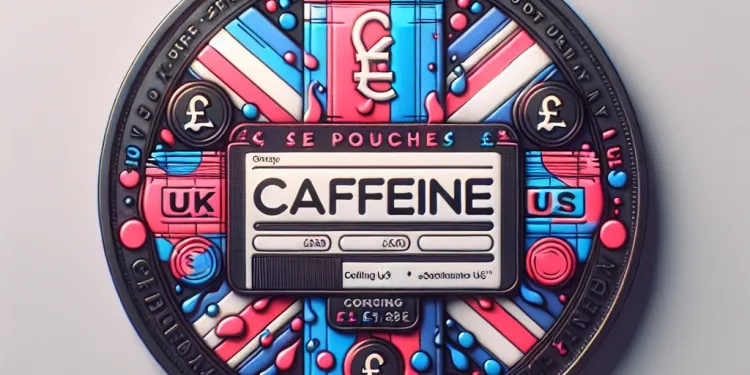
What are Caffeine Pouches?
Relevance: 50%
-
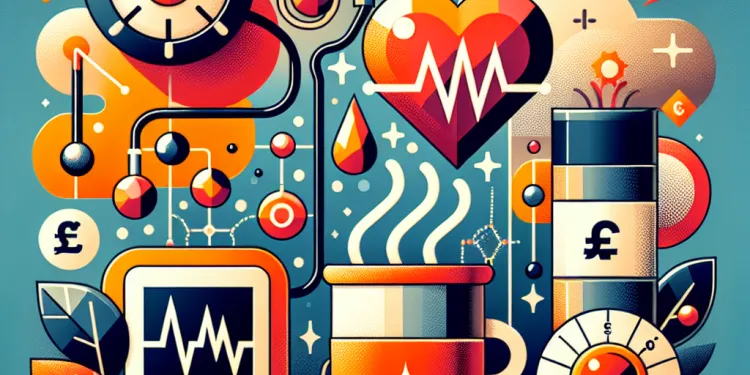
How does caffeine affect blood pressure?
Relevance: 49%
-
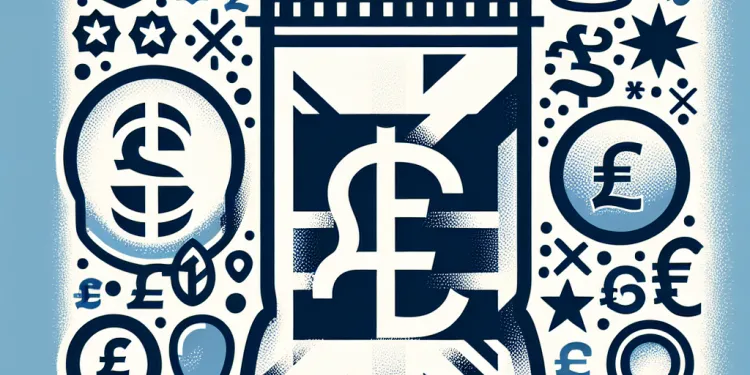
Can caffeine pouches help with energy?
Relevance: 49%
-
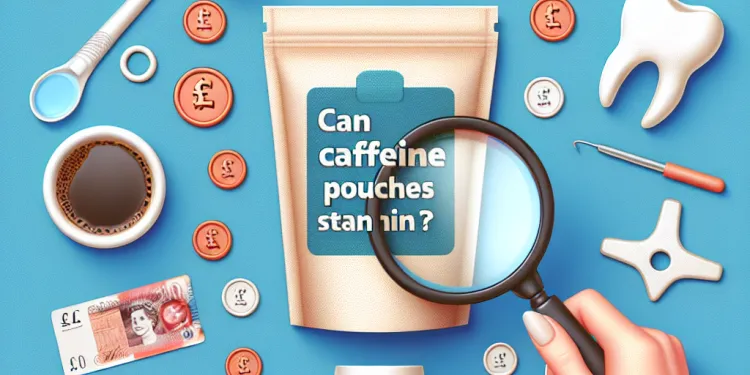
Can caffeine pouches stain teeth?
Relevance: 47%
-
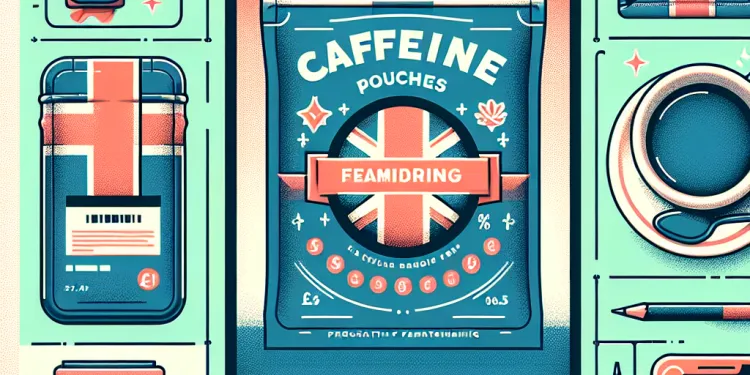
What are the side effects of caffeine pouches?
Relevance: 44%
-
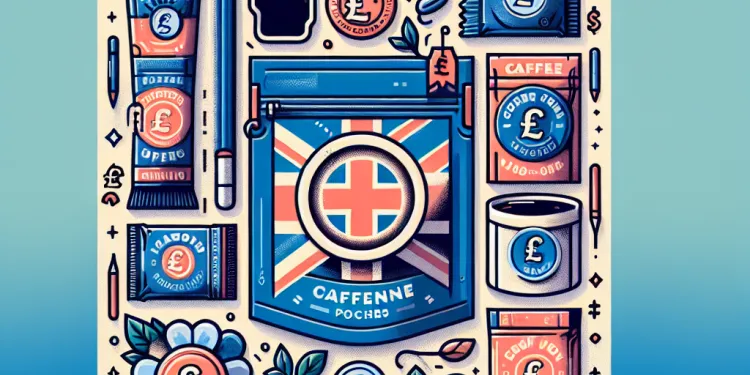
Are there different flavors of caffeine pouches?
Relevance: 44%
-
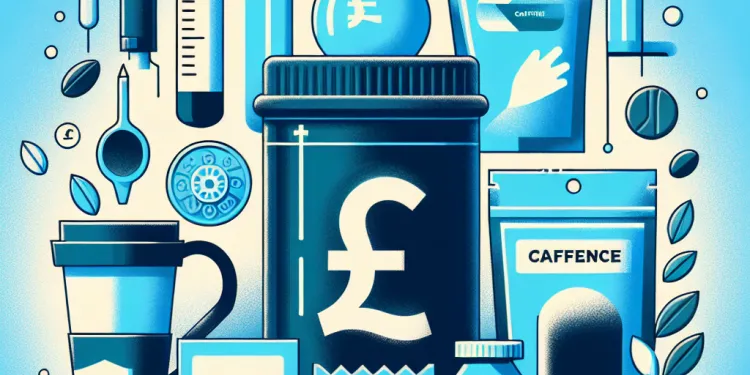
What ingredients are typically found in caffeine pouches?
Relevance: 43%
-
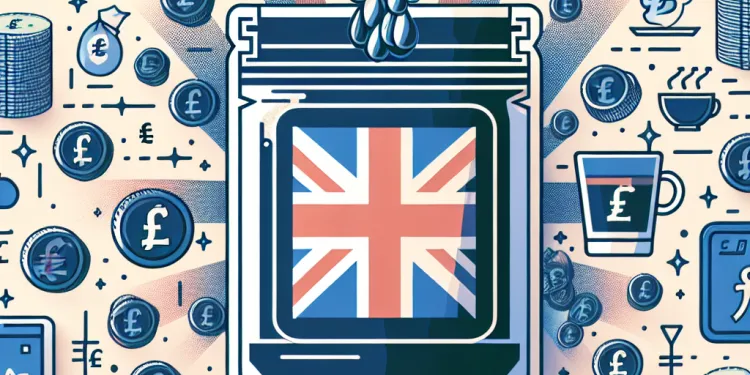
How long does the caffeine effect last from a pouch?
Relevance: 43%
-
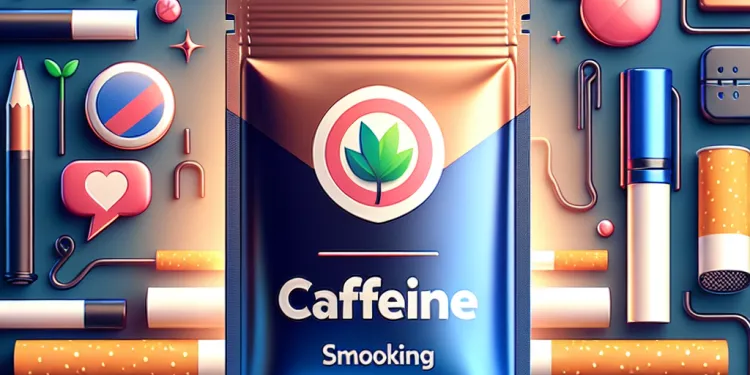
Can caffeine pouches be used for quitting smoking?
Relevance: 42%
-
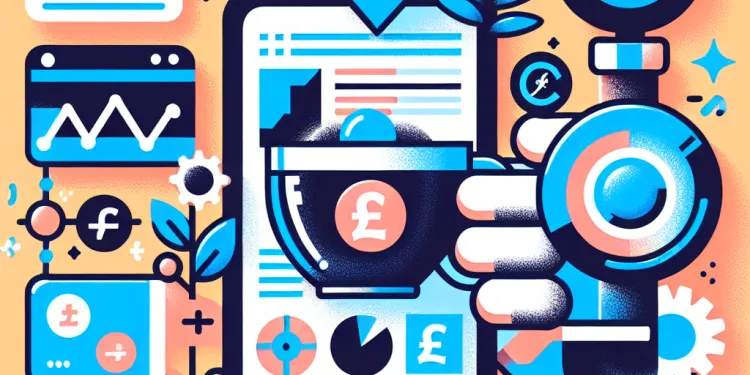
How does regular caffeine consumption impact tolerance and blood pressure?
Relevance: 41%
-
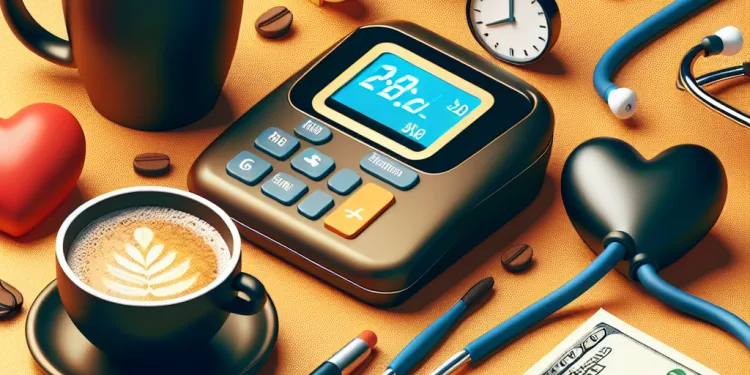
Should people with high blood pressure avoid coffee entirely?
Relevance: 41%
-
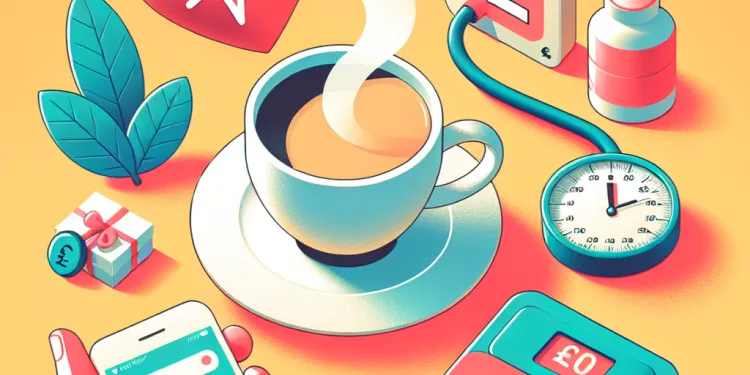
Is Your Morning Coffee a Risk Factor for High Blood Pressure?
Relevance: 40%
-
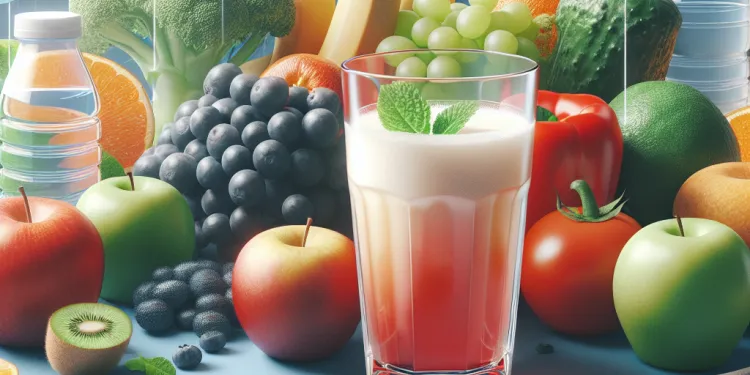
What should I eat or drink if I have norovirus?
Relevance: 40%
-
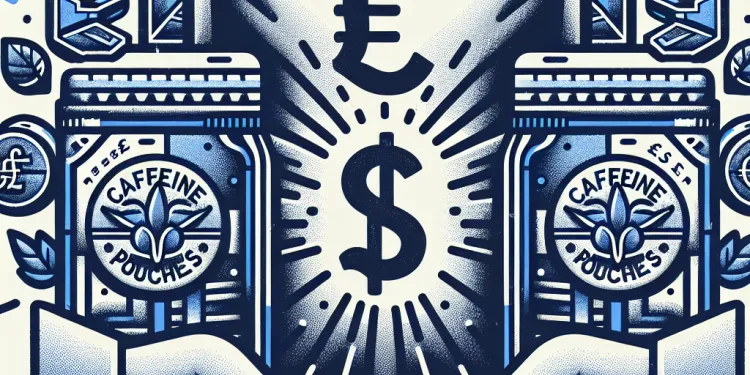
Who should avoid using caffeine pouches?
Relevance: 39%
-
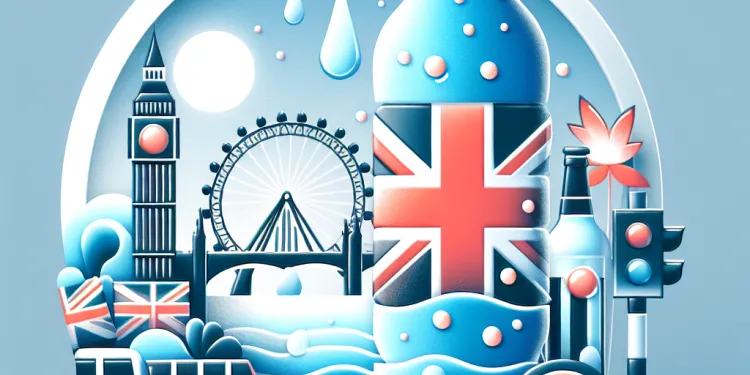
How much water should I drink during a heatwave?
Relevance: 39%
-
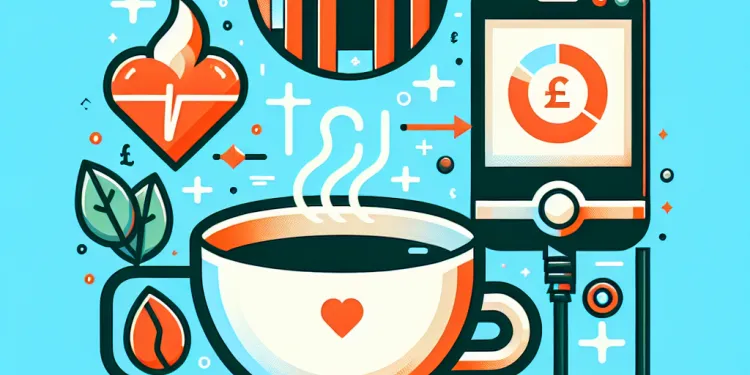
How soon after drinking coffee can blood pressure be affected?
Relevance: 39%
-
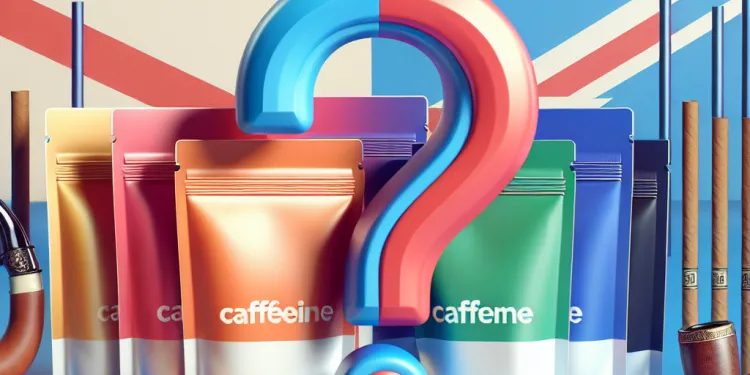
Are caffeine pouches a tobacco product?
Relevance: 39%
-

What drugs are commonly used to spike drinks?
Relevance: 38%
-
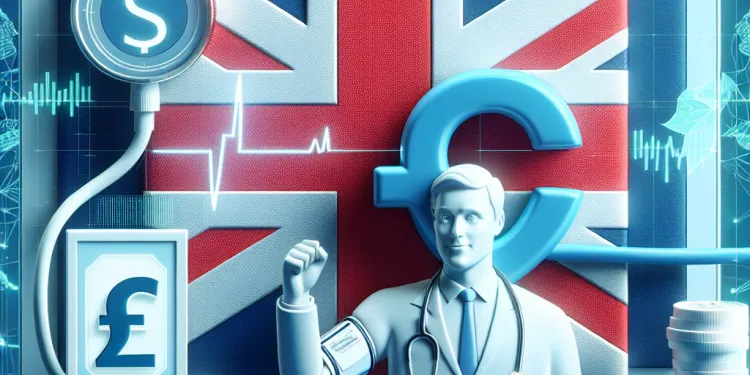
Can high blood pressure be prevented?
Relevance: 38%
-
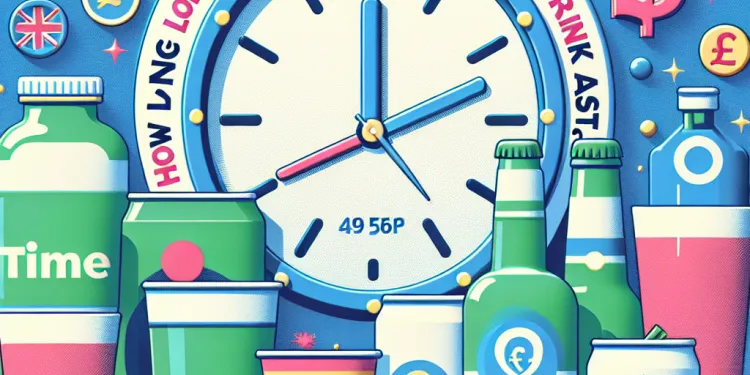
How long do the effects of a spiked drink last?
Relevance: 37%
-
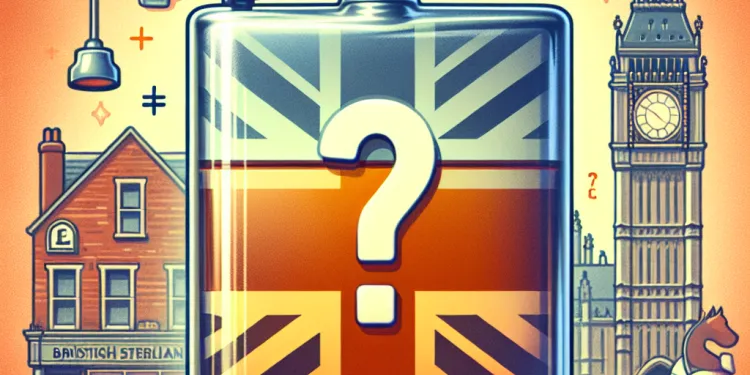
How do I know if my drink was spiked?
Relevance: 37%
-
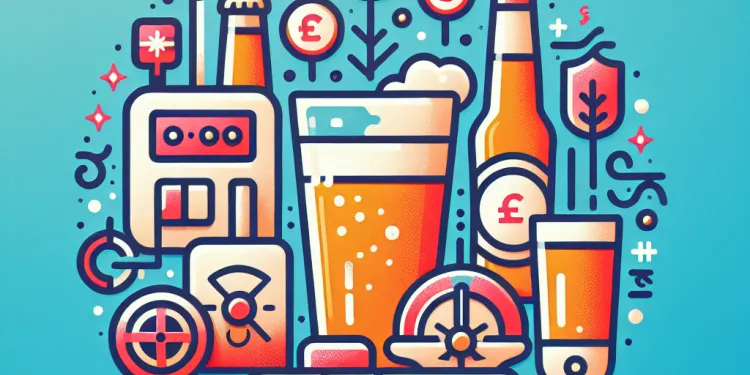
How effective are drink testing kits?
Relevance: 37%
-
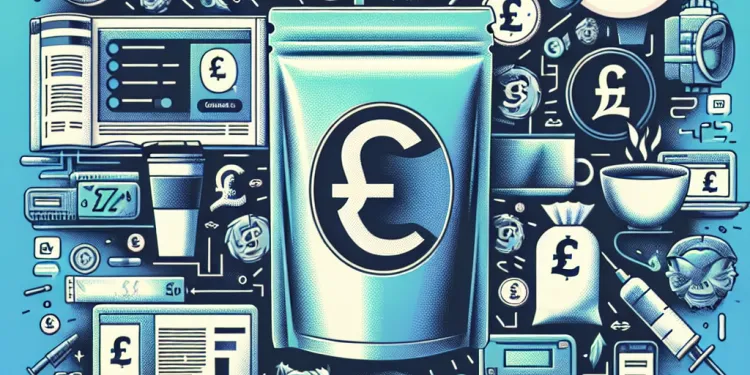
Where can one buy caffeine pouches?
Relevance: 36%
-

How can I reduce the risk of my drink being spiked?
Relevance: 36%
-
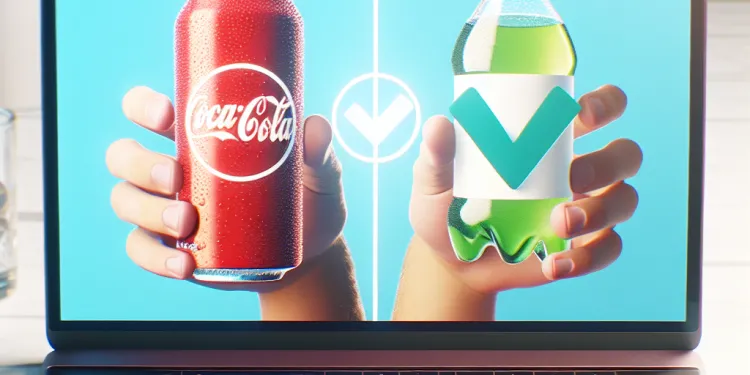
What role do sugary drinks play in obesity?
Relevance: 35%
-
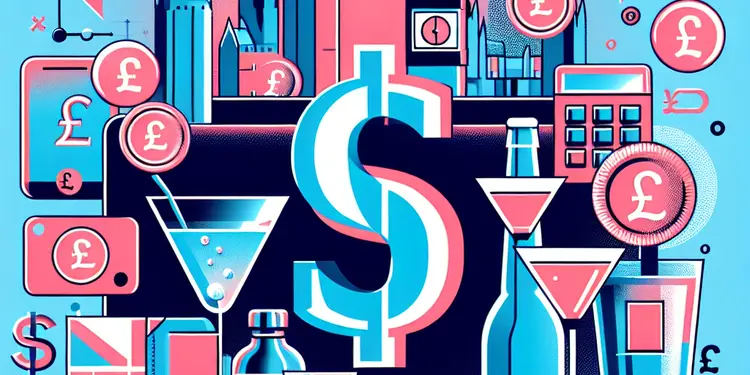
What are the social consequences of binge drinking?
Relevance: 35%
-
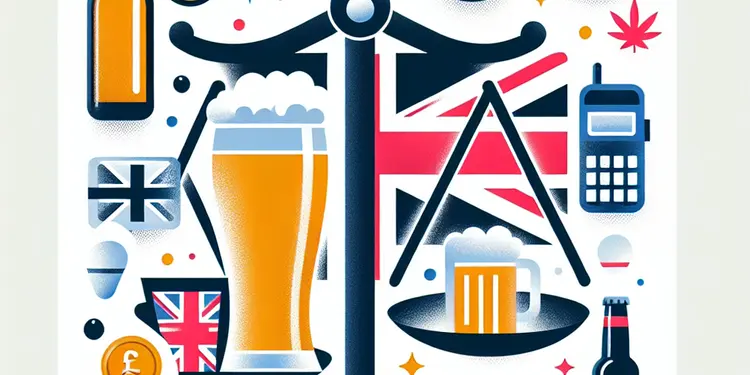
How does alcohol tolerance relate to binge drinking?
Relevance: 35%
-
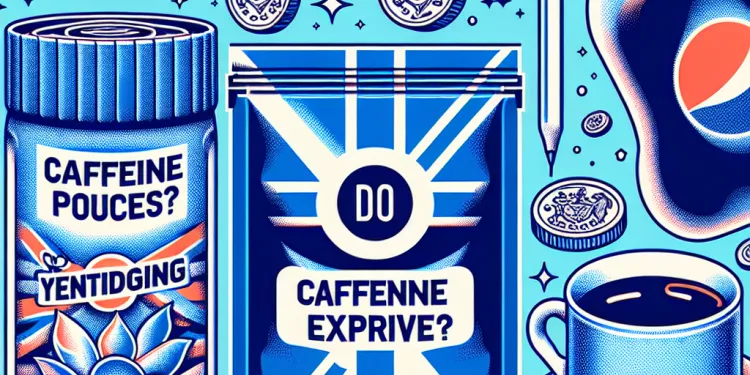
Do caffeine pouches expire?
Relevance: 34%
-

Can drink covers be reused to prevent spiking?
Relevance: 34%
-
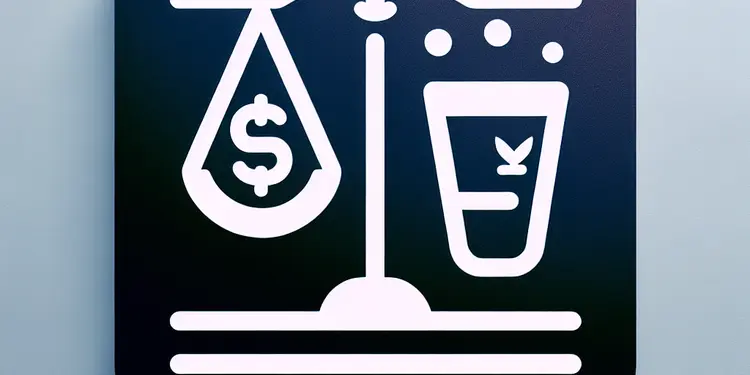
Are there any laws against binge drinking?
Relevance: 34%
-
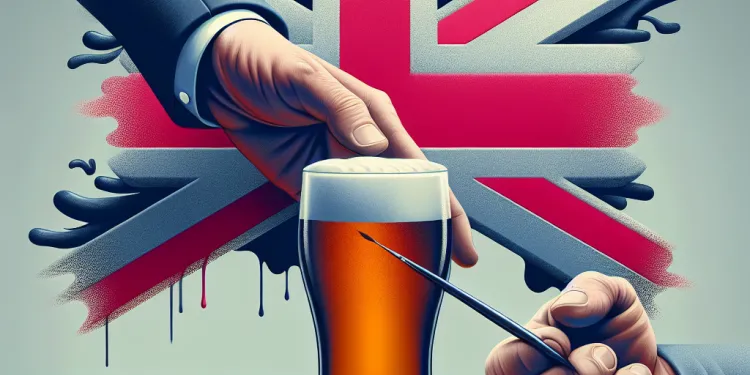
What should I do if I witness someone's drink being spiked?
Relevance: 34%
-
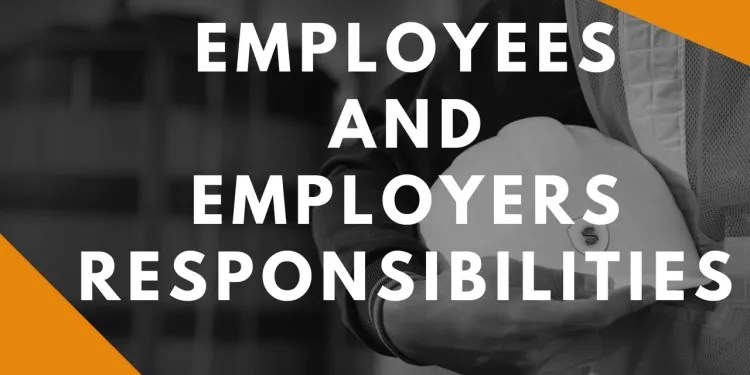
Health and safety responsibilities
Relevance: 34%
-
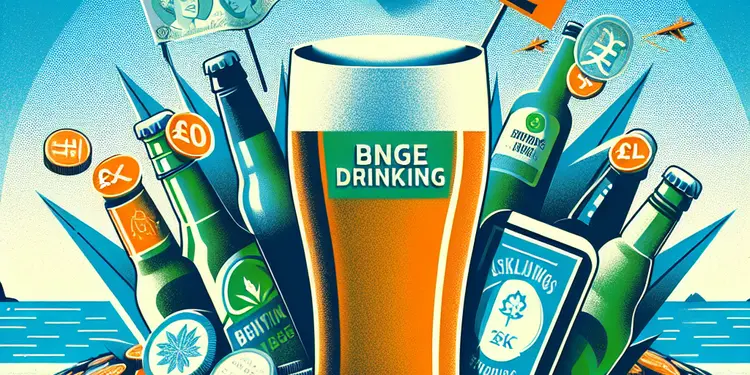
What are the risks associated with binge drinking?
Relevance: 34%
Introduction to High Caffeine Drinks
High caffeine drinks, including energy drinks and certain coffee beverages, have grown in popularity, particularly among younger audiences. These drinks promise increased alertness, improved concentration, and enhanced physical performance, making them a go-to choice for students, professionals, and athletes. However, with the rise in consumption comes a growing concern about their safety and potential health impacts.
Understanding Caffeine Content
Caffeine is a natural stimulant found in tea, coffee, and certain seeds and leaves. It works primarily by stimulating the brain and the central nervous system, helping you to stay alert and preventing the onset of tiredness. High caffeine drinks can contain anywhere from 160mg to over 300mg of caffeine per serving, far exceeding the caffeine content of typical soft drinks.
Potential Health Risks
The consumption of excessive amounts of caffeine can lead to a range of health issues. Commonly reported side effects include insomnia, jitters, headaches, dizziness, and an increased heartbeat. For some individuals, consuming high doses of caffeine can lead to more severe health implications such as anxiety, heart palpitations, and in extreme cases, caffeine toxicity.
Younger individuals and those with underlying health conditions may be particularly susceptible to caffeine-related health risks. The NHS recommends that adults limit their caffeine intake to no more than 400mg per day, which equates to around four cups of coffee. Energy drinks that contain high levels of caffeine can quickly elevate a person's daily intake to risky levels.
Regulation and Guidelines in the UK
In the UK, there are specific guidelines and regulations concerning the sale and marketing of high caffeine drinks. For instance, energy drinks containing more than 150mg of caffeine per litre must carry a warning label indicating their high caffeine content. Additionally, these products are often labelled as not recommended for children, pregnant or breastfeeding women, and individuals sensitive to caffeine.
Many UK retailers, as a part of voluntary schemes, have also implemented age restrictions on the sale of energy drinks to individuals under 16. This is intended to curb excessive consumption among young individuals who may be more vulnerable to caffeine's effects.
Conclusion
While high caffeine drinks are generally safe when consumed in moderation, it is crucial for individuals to be aware of the potential health risks associated with excessive consumption. Consumers should monitor their daily caffeine intake and be mindful of the effects that caffeine can have on their overall health and well-being. For energy and enhanced performance, it is advisable to consider alternative options such as a balanced diet, adequate sleep, and regular physical activity.
What Are High Caffeine Drinks?
Drinks with a lot of caffeine, like energy drinks and some coffees, are very popular. Many people, especially young people, like them. These drinks say they help you stay awake, think better, and perform well in sports. But drinking a lot of them might not be safe. People are worried they can be bad for your health.
What is Caffeine?
Caffeine is found in tea, coffee, and some plants. It helps you feel awake by working on your brain. High caffeine drinks have a lot more caffeine than normal fizzy drinks. They can have from 160mg to 300mg of caffeine in one drink.
Health Concerns
Too much caffeine can make you feel unwell. You might have trouble sleeping, feel shaky, get headaches, feel dizzy, or have a fast heartbeat. Some people might feel very anxious or have heart problems. The NHS says adults should not have more than 400mg of caffeine a day, like four cups of coffee. Energy drinks with a lot of caffeine can easily make you go over this amount.
Young people and those not feeling well already might have more problems with caffeine. That's why it's good to be careful about how much you drink.
Rules in the UK
In the UK, there are rules about drinks with a lot of caffeine. Drinks with more than 150mg of caffeine per litre must have a warning label. These drinks usually say they are not for kids, pregnant women, or people who react strongly to caffeine.
Some shops in the UK also won't sell energy drinks to kids under 16. This is to help stop them from drinking too much caffeine.
Final Thoughts
High caffeine drinks are okay sometimes, but don't drink too much. It's important to know the risks. Look at how much caffeine you have every day. For more energy, try eating well, sleeping enough, and exercising regularly.
Frequently Asked Questions
What are high caffeine drinks?
High caffeine drinks are beverages that contain a large amount of caffeine, such as energy drinks, certain coffee drinks, and some sodas.
How much caffeine is considered high?
Typically, drinks with more than 150 mg of caffeine per serving are considered high in caffeine.
Are high caffeine drinks safe for everyone?
High caffeine drinks can be safe for most adults when consumed in moderation, but they may not be safe for children, pregnant women, or individuals with certain health conditions.
What are the potential health risks of consuming high caffeine drinks?
Potential risks include insomnia, nervousness, restlessness, stomach upset, rapid heartbeat, and increased blood pressure.
Can high caffeine drinks cause addiction?
Caffeine can lead to physical dependence, and some people may experience withdrawal symptoms without it.
Is it safe to consume high caffeine drinks during pregnancy?
Pregnant women are advised to limit caffeine intake as high levels can pose risks to the fetus.
What is the recommended daily limit for caffeine consumption?
For most adults, up to 400 mg of caffeine per day is considered safe.
Can high caffeine drinks improve athletic performance?
Caffeine can enhance physical performance and endurance, but excessive intake can be detrimental.
Are children and teenagers safe to consume high caffeine drinks?
It is generally recommended to limit caffeine intake for children and teenagers, as they are more sensitive to its effects.
How do high caffeine drinks affect sleep?
Caffeine can interfere with sleep by increasing alertness and delaying the onset of sleep.
Can high caffeine intake lead to dehydration?
Caffeine has mild diuretic effects, but moderate consumption does not cause dehydration.
Are energy drinks more dangerous than coffee?
Some energy drinks may contain additional stimulants and higher caffeine doses than coffee, which can increase health risks.
Can high caffeine drinks help with weight loss?
Caffeine may boost metabolism and fat burning, but high caffeine drinks often contain high sugar levels that can counteract weight loss efforts.
What are the signs of caffeine overdose?
Symptoms of caffeine overdose include tremors, dizziness, rapid heartbeat, and, in severe cases, seizures.
How do high caffeine drinks impact mental health?
Excessive caffeine can worsen anxiety, cause jitteriness, and contribute to mood fluctuations.
Are there any benefits to consuming high caffeine drinks?
Benefits can include increased alertness, improved concentration, and enhanced physical performance when consumed in moderation.
How does caffeine affect the heart?
Caffeine can temporarily increase heart rate and blood pressure, which may be concerning for individuals with heart conditions.
What should you do if you experience adverse effects from high caffeine drinks?
Decrease caffeine intake and consult a healthcare professional if you experience severe or persistent symptoms.
Can high caffeine drinks interact with medications?
Yes, caffeine can interact with certain medications, such as antidepressants and blood pressure drugs, potentially altering their effects.
How can you reduce caffeine intake safely?
Gradually reduce consumption, replace high caffeine drinks with lower caffeine alternatives, and monitor intake to minimize withdrawal symptoms.
What are drinks with a lot of caffeine?
Some drinks have a lot of caffeine. Caffeine can make you feel awake. It is in drinks that give you energy.
- Energy drinks: These drinks are made to give you more energy. Examples are Red Bull or Monster.
- Coffee: This is a hot drink that lots of people drink in the morning.
- Some sodas: Some fizzy drinks like cola also have caffeine.
Too much caffeine can make you feel shaky or make it hard to sleep. It is good to be careful and not drink too many of these drinks.
If reading is hard, try:
- Using a ruler or finger to follow each line.
- Breaking the text into shorter parts.
- Reading with someone who can help.
Drinks with a lot of caffeine are things like energy drinks, some coffee drinks, and some sodas. These drinks have a lot of caffeine in them.
What is a lot of caffeine?
When a drink has more than 150 mg of caffeine in one serving, we say it has a lot of caffeine.
Are high-caffeine drinks safe for everyone?
High-caffeine drinks are drinks like energy drinks and strong coffee. They have a lot of caffeine.
Caffeine can make you feel more awake and give you energy. But too much caffeine can sometimes make you feel bad.
For kids and some grown-ups, drinking too much caffeine can be unsafe. It can make you feel shaky, dizzy, or make your heart beat fast.
Not everyone should drink high-caffeine drinks. It's a good idea to talk to a doctor if you're not sure.
If you want to know more, you can ask a doctor or read together with someone who can help explain.
Drinks with a lot of caffeine are okay for most grown-ups if you don't drink too much. But they might not be safe for kids, pregnant women, or people who are not feeling well.
What health problems can happen if you drink a lot of caffeine?
Coffee and energy drinks have caffeine. Too much caffeine can make you feel bad. Here's what can happen:
- You might feel shaky or nervous.
- Your heart could beat very fast.
- You might have trouble sleeping.
- Your stomach could hurt.
- You could feel dizzy or confused.
If you feel these things, it helps to:
- Drink water instead to feel better.
- Take deep breaths to calm down.
- Rest until you feel okay.
Some things that might happen are trouble sleeping, feeling nervous, feeling restless, an upset tummy, a fast heartbeat, and high blood pressure.
Do drinks with a lot of caffeine make people addicted?
Caffeine can make your body want more and more. If you stop having caffeine, some people might feel a bit unwell.
Can I drink drinks with a lot of caffeine when I am pregnant?
It is important to be careful with drinks that have high caffeine when you are pregnant. Too much caffeine can harm the baby growing inside you.
Here are some tips to help you:
- Try to drink less caffeine. This means drinking fewer coffee, tea, or soda drinks.
- Ask a doctor or nurse if you are not sure about caffeine and your baby.
- Look for drinks with little or no caffeine, like water, milk, or fruit juice.
Pregnant women should drink less caffeine. Too much caffeine can be bad for the baby in the belly.
How much caffeine should you have each day?
Most grown-ups can drink up to 400 mg of caffeine each day safely.
Do drinks with a lot of caffeine help you play sports better?
Caffeine can help your body do better when you move or do sports. But having too much can be bad for you.
Is it safe for kids and teenagers to drink drinks with a lot of caffeine?
Some drinks have a lot of caffeine, like energy drinks. Is it okay for kids and teenagers to drink them?
Caffeine can make people feel awake, but too much can be bad. It can make it hard to sleep, feel nervous, or make your heart beat fast.
It's better for kids and teenagers to drink less caffeine. They can try water, milk, or juice instead.
If you're not sure, talk to an adult you trust. They can help you make a good choice.
There are helpful things like talking to friends and family or using reminders to choose drinks without caffeine.
It's a good idea for kids and teenagers to have less caffeine because they feel its effects more strongly than adults do.
How do drinks with a lot of caffeine change sleep?
Drinks like coffee, tea, or soda that have a lot of caffeine can make it hard to sleep. Caffeine is a strong chemical that wakes us up.
Here is what happens:
- Stay Awake Longer: Caffeine can keep you awake for a long time at night.
- Less Deep Sleep: It can stop you from having deep sleep, which is the most restful part of sleep.
- Trouble Falling Asleep: It can be harder to fall asleep if you've had caffeine.
Here are some tips to help:
- Limit Caffeine: Try not to drink caffeine drinks in the afternoon or evening.
- Relax Before Bed: Do something calm before bedtime, like reading or listening to soft music.
- Drink Water or Milk: These drinks do not have caffeine and can be relaxing before sleep.
Caffeine can keep you awake. It makes you more alert and makes it harder to fall asleep.
Does drinking a lot of caffeine make you lose water?
When you drink too much caffeine, like in coffee or energy drinks, it might make you pee more. This is because caffeine is a diuretic, which means it can make your body lose water. But, drinking caffeinated drinks can still count towards your daily fluids.
Here are some tips to stay hydrated:
- Drink water throughout the day.
- Try drinking herbal tea or juice for a change.
- Pay attention to your body's signs of thirst.
If you're unsure about caffeine and water loss, you can talk to a doctor.
Caffeine can make you pee a little more, but drinking it in small amounts won't make you lose too much water.
Is drinking energy drinks worse than drinking coffee?
Some energy drinks have extra ingredients that can make you feel very awake. These drinks can have more caffeine than coffee. This can be bad for your health.
Can drinks with lots of caffeine help you lose weight?
Drinks like coffee and energy drinks have something called caffeine. Some people think caffeine might help them lose weight.
But remember:
- Caffeine can give you energy, which might make you move more.
- Drinking too much caffeine can make you feel bad, like having a fast heartbeat or feeling nervous.
- It is important to eat healthy foods and exercise to lose weight in the best way.
Tools that might help:
- Use a reminder tool to check how much caffeine you have each day.
- Try using fun exercise videos to stay active.
Caffeine can help your body use up energy and burn fat. But, drinks with a lot of caffeine usually have a lot of sugar too. The sugar can make it harder to lose weight.
What happens if you have too much caffeine?
If you have too much caffeine, you might feel shaky or dizzy. Your heart might beat really fast. In very bad situations, you could have a seizure.
Do drinks with lots of caffeine affect how we feel?
Too much caffeine can make you feel more anxious, shaky, and can mess with your mood.
Is there anything good about drinking drinks with a lot of caffeine?
Drinks with a lot of caffeine, like energy drinks, might help you feel less tired and more awake.
If you drink caffeine, make sure to do it safely. Don't have too much, or it might make you feel bad.
You can ask an adult if you aren't sure about caffeine. They can help you understand more about it.
Drinking a little bit can help you feel more awake, focus better, and do things like sports or exercise better.
What does caffeine do to your heart?
Caffeine is in drinks like coffee and tea. It can make your heart beat faster and your blood pressure go up for a short time. If your heart is not strong, this might be a problem.
What to do if you feel bad after drinking a lot of caffeine?
Drink less caffeine, like coffee or soda. If you still feel very bad or if it doesn't go away, talk to a doctor or nurse. They can help you feel better.
Do drinks with a lot of caffeine affect medicine?
Yes, caffeine can mix with some medicines. These include some medicines for feeling sad (antidepressants) and for the heart (blood pressure drugs). This can change how the medicine works.
How can you cut down on caffeine safely?
Caffeine is in coffee, tea, and some fizzy drinks. Too much can make you feel shaky or keep you awake.
Here are some tips to help you have less caffeine:
- Drink less coffee or tea each day. Try one less cup.
- Pick drinks without caffeine, like water or juice.
- Drink decaf coffee or herbal teas without caffeine.
- Eat and sleep well to feel good without caffeine.
If you need help, ask a doctor or nurse.
Slowly drink less caffeine. Switch drinks with a lot of caffeine to drinks with less caffeine. Keep track of how much caffeine you have to avoid feeling bad when stopping.
Useful Links
This website offers general information and is not a substitute for professional advice.
Always seek guidance from qualified professionals.
If you have any medical concerns or need urgent help, contact a healthcare professional or emergency services immediately.
Some of this content was generated with AI assistance. We’ve done our best to keep it accurate, helpful, and human-friendly.
- Ergsy carfully checks the information in the videos we provide here.
- Videos shown by Youtube after a video has completed, have NOT been reviewed by ERGSY.
- To view, click the arrow in centre of video.
- Most of the videos you find here will have subtitles and/or closed captions available.
- You may need to turn these on, and choose your preferred language.
- Go to the video you'd like to watch.
- If closed captions (CC) are available, settings will be visible on the bottom right of the video player.
- To turn on Captions, click settings .
- To turn off Captions, click settings again.
More Items From Ergsy search
-
Are high caffeine drinks safe?
Relevance: 100%
-

How much caffeine is generally considered safe for people with high blood pressure?
Relevance: 61%
-

Are caffeine pouches safe?
Relevance: 56%
-

How much caffeine is in a caffeine pouch?
Relevance: 54%
-

Does drinking coffee every morning increase the risk of developing high blood pressure?
Relevance: 53%
-

Are there any legal restrictions on caffeine pouches?
Relevance: 51%
-

Does caffeine affect blood pressure?
Relevance: 50%
-

What are Caffeine Pouches?
Relevance: 50%
-

How does caffeine affect blood pressure?
Relevance: 49%
-

Can caffeine pouches help with energy?
Relevance: 49%
-

Can caffeine pouches stain teeth?
Relevance: 47%
-

What are the side effects of caffeine pouches?
Relevance: 44%
-

Are there different flavors of caffeine pouches?
Relevance: 44%
-

What ingredients are typically found in caffeine pouches?
Relevance: 43%
-

How long does the caffeine effect last from a pouch?
Relevance: 43%
-

Can caffeine pouches be used for quitting smoking?
Relevance: 42%
-

How does regular caffeine consumption impact tolerance and blood pressure?
Relevance: 41%
-

Should people with high blood pressure avoid coffee entirely?
Relevance: 41%
-

Is Your Morning Coffee a Risk Factor for High Blood Pressure?
Relevance: 40%
-

What should I eat or drink if I have norovirus?
Relevance: 40%
-

Who should avoid using caffeine pouches?
Relevance: 39%
-

How much water should I drink during a heatwave?
Relevance: 39%
-

How soon after drinking coffee can blood pressure be affected?
Relevance: 39%
-

Are caffeine pouches a tobacco product?
Relevance: 39%
-

What drugs are commonly used to spike drinks?
Relevance: 38%
-

Can high blood pressure be prevented?
Relevance: 38%
-

How long do the effects of a spiked drink last?
Relevance: 37%
-

How do I know if my drink was spiked?
Relevance: 37%
-

How effective are drink testing kits?
Relevance: 37%
-

Where can one buy caffeine pouches?
Relevance: 36%
-

How can I reduce the risk of my drink being spiked?
Relevance: 36%
-

What role do sugary drinks play in obesity?
Relevance: 35%
-

What are the social consequences of binge drinking?
Relevance: 35%
-

How does alcohol tolerance relate to binge drinking?
Relevance: 35%
-

Do caffeine pouches expire?
Relevance: 34%
-

Can drink covers be reused to prevent spiking?
Relevance: 34%
-

Are there any laws against binge drinking?
Relevance: 34%
-

What should I do if I witness someone's drink being spiked?
Relevance: 34%
-

Health and safety responsibilities
Relevance: 34%
-

What are the risks associated with binge drinking?
Relevance: 34%


